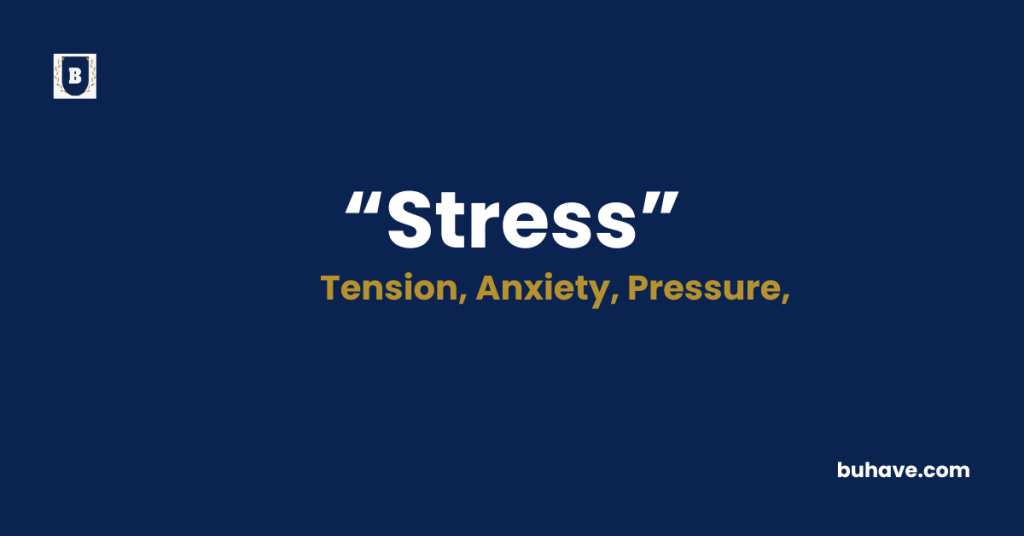The word ‘Stress’ (Noun) refers to a state of mental or emotional strain and also the physical pressure or tension placed on something. In this guide, you’ll learn the full meaning, definition, etymology, synonyms, antonyms, and real-life examples of how to use ‘Stress’ correctly in various contexts.
Stress Explained in Depth
A complete and detailed guide to the word ‘Stress’ including meaning, definition, examples, etymology, synonyms, and antonyms.
Meanings of Stress
Stress describes emotional or physical pressure resulting from challenging or demanding situations. It can also mean emphasis placed on something important, whether in speech, action, or thought. As a verb, it means to emphasize or highlight something.
Definition
Stress is defined as a state of strain or tension resulting from adverse or demanding circumstances. It also refers to physical force on an object or mental/emotional strain on a person. As a verb, it means to emphasize something strongly.
Etymology
The word “stress” originates from the Middle English word stresse, meaning “hardship” or “force,” which is derived from Old French estresse and Latin strictus, meaning “drawn tight.” It evolved in the 14th century to describe pressure and emphasis, both emotional and mechanical.
Example Sentences
- She experienced a lot of stress before her final exams.
- The bridge collapsed due to the excessive stress on its supports.
- He stressed the importance of honesty in every conversation.
- Yoga helps reduce stress and improve emotional well-being.
Stress Synonyms
- Anxiety
- Tension
- Strain
- Pressure
- Nervousness
- Worry
- Emphasis
- Burden
- Distress
- Unease
Stress Antonyms
FAQs about Stress
Here are some frequently asked questions (FAQs) about the word “Stress”
1. What is stress in mental health?
In mental health, stress refers to the emotional or psychological strain resulting from difficult life situations, such as work, relationships, or health concerns.
2. Can stress be positive?
Yes. Positive stress, or “eustress,” can motivate people and improve performance under pressure.
3. What causes stress?
Common causes include deadlines, major life changes, personal conflict, and health issues.
4. How can stress be managed?
Stress can be managed through exercise, mindfulness, rest, therapy, and time management.
5. Is stress always harmful?
Not necessarily. While chronic stress can harm health, short-term stress can help in problem-solving and alertness.

















